- The feedback of the participants to the pilot activity
The 30 Higher Education students from Italy, Spain, Romania, Slovakia, Cyprus and Slovenia evaluated their learning experience at the end of the pilot in Ljubljana
- The HE students’ mobility event in Slovenia to pilot the DOEER online course
The mobility of HE students organized in Ljubljana to jointly pilot the DOEER equality course and experience inclusive tourism
- DOEER Newsletter 4
In this issue: How to use the multilingual DOEER learning; Attendees’ evaluation of the training event in Spain; The pilot learning for the university students from all project countries; The DOEER fourth project meeting in Seville
- The DOEER fourth project meeting in Seville
The DOEER team met in person in Spain for the fourth time
- The pilot learning for the university students from all project countries
Programme of the pilot learning for HE students from the project universities, which is scheduled to take place in the first quarter of 2025
- Attendees’ evaluation of the training event in Spain
Feedback of the 20 participants from the partners’ organisation who took place to the staff peer training in Seville, Spain
- How to use the multilingual DOEER learning
How to use the “DOEER course on equality-based practice in tourism”, available for HE students and stakeholders in all project languages and free access online
- DOEER Newsletter 3
In this issue: The DOEER MOOC; The DOEER third project meeting in Ljubljana; The DOEER project staff training event in Spain; The DOEER programme of pilot learning
- The DOEER programme of pilot learning
The project team is preparing the programme of the piloting learning for students scheduled in the first months of 2025
- The DOEER project staff training event in Spain
Experts and staff from all project partners will participate in a four-days peer training activity scheduled to take place in Spain in October 2024
- The DOEER MOOC
The free access online course on equality-based practices is the main output of the DOEER project
- The DOEER third project meeting in Ljubljana
Organized by the Slovenian partner GOOD PLACE in Ljubljana, this meeting offered all partners the opportunity to evaluate the current achievements and schedule all next steps
- DOEER Newsletter 2
In this issue: Quality guidelines for HE digital and pedagogical competencies on equality; The DOEER definitions of equalities; Worst and best practice on equality; The DOEER second project meeting in Cyprus; The DOEER Framework
- Quality guidelines for HE digital and pedagogical competencies on equality
Open access Study ‘Quality guidelines for HE digital and pedagogical competencies on equality’ presents the analysis of the findings from the consultation of national groups of experts on quality-based practices in education and business sector
- The DOEER Framework
As core component of the DOEER learning, the project team created a specific Framework to support the achievement of competencies on equality-based practice
- The DOEER second project meeting in Cyprus
The project team met again in person in Nicosia (Cyprus)
- The DOEER definitions of equalities
The DOEER project selected and described specific areas of Equality, in which the project provides dedicated learning to acquire competencies on equality-based practices in education and business sector
- Worst and best practice on equality
Selected equality-based practices in education and business sector, in the identified areas of Equality, are provided as learning material
- DOEER Newsletter 1
In this issue: The objectives of the DOEER project; The DOEER proposed learning; The DOEER branding; The DOEER first project meeting in person in Bucharest; Consultation of national groups of experts/counsellors in the project countries
- Consultation of national groups of experts/counsellors in each project country
National groups of experts/counsellors in the project countries will be consulted on what worst/best practice should be selected as relevant to the principles of equality-based practices in education and business sector
- Intercultural Equality
Intercultural equality refers to the principle of equal treatment and respect for all cultures, and the recognition of the diversity of cultural expressions and practices
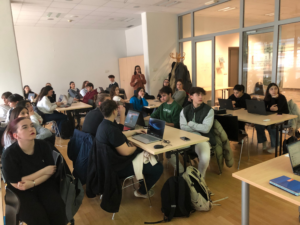 The 30 Higher Education students from Italy, Spain, Romania, Slovakia, Cyprus and Slovenia evaluated their learning experience at the end of the pilot in Ljubljana
The 30 Higher Education students from Italy, Spain, Romania, Slovakia, Cyprus and Slovenia evaluated their learning experience at the end of the pilot in Ljubljana The mobility of HE students organized in Ljubljana to jointly pilot the DOEER equality course and experience inclusive tourism
The mobility of HE students organized in Ljubljana to jointly pilot the DOEER equality course and experience inclusive tourism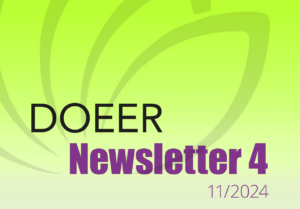 In this issue: How to use the multilingual DOEER learning; Attendees’ evaluation of the training event in Spain; The pilot learning for the university students from all project countries; The DOEER fourth project meeting in Seville
In this issue: How to use the multilingual DOEER learning; Attendees’ evaluation of the training event in Spain; The pilot learning for the university students from all project countries; The DOEER fourth project meeting in Seville The DOEER team met in person in Spain for the fourth time
The DOEER team met in person in Spain for the fourth time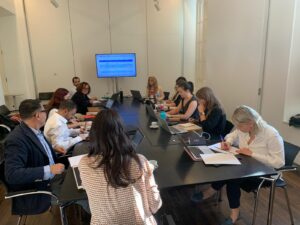 Programme of the pilot learning for HE students from the project universities, which is scheduled to take place in the first quarter of 2025
Programme of the pilot learning for HE students from the project universities, which is scheduled to take place in the first quarter of 2025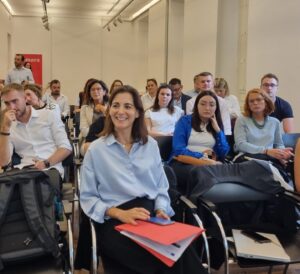 Feedback of the 20 participants from the partners’ organisation who took place to the staff peer training in Seville, Spain
Feedback of the 20 participants from the partners’ organisation who took place to the staff peer training in Seville, Spain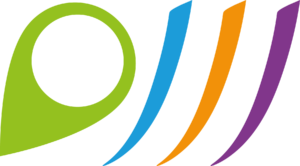 How to use the “DOEER course on equality-based practice in tourism”, available for HE students and stakeholders in all project languages and free access online
How to use the “DOEER course on equality-based practice in tourism”, available for HE students and stakeholders in all project languages and free access online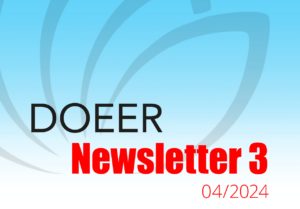 In this issue: The DOEER MOOC; The DOEER third project meeting in Ljubljana; The DOEER project staff training event in Spain; The DOEER programme of pilot learning
In this issue: The DOEER MOOC; The DOEER third project meeting in Ljubljana; The DOEER project staff training event in Spain; The DOEER programme of pilot learning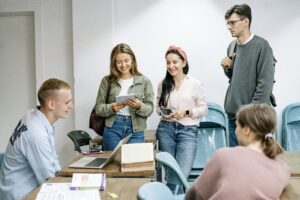 The project team is preparing the programme of the piloting learning for students scheduled in the first months of 2025
The project team is preparing the programme of the piloting learning for students scheduled in the first months of 2025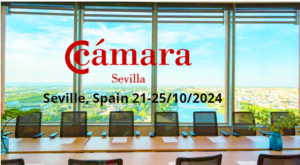 Experts and staff from all project partners will participate in a four-days peer training activity scheduled to take place in Spain in October 2024
Experts and staff from all project partners will participate in a four-days peer training activity scheduled to take place in Spain in October 2024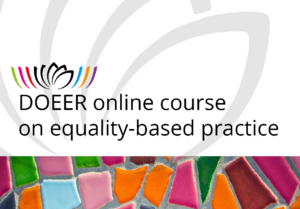 The free access online course on equality-based practices is the main output of the DOEER project
The free access online course on equality-based practices is the main output of the DOEER project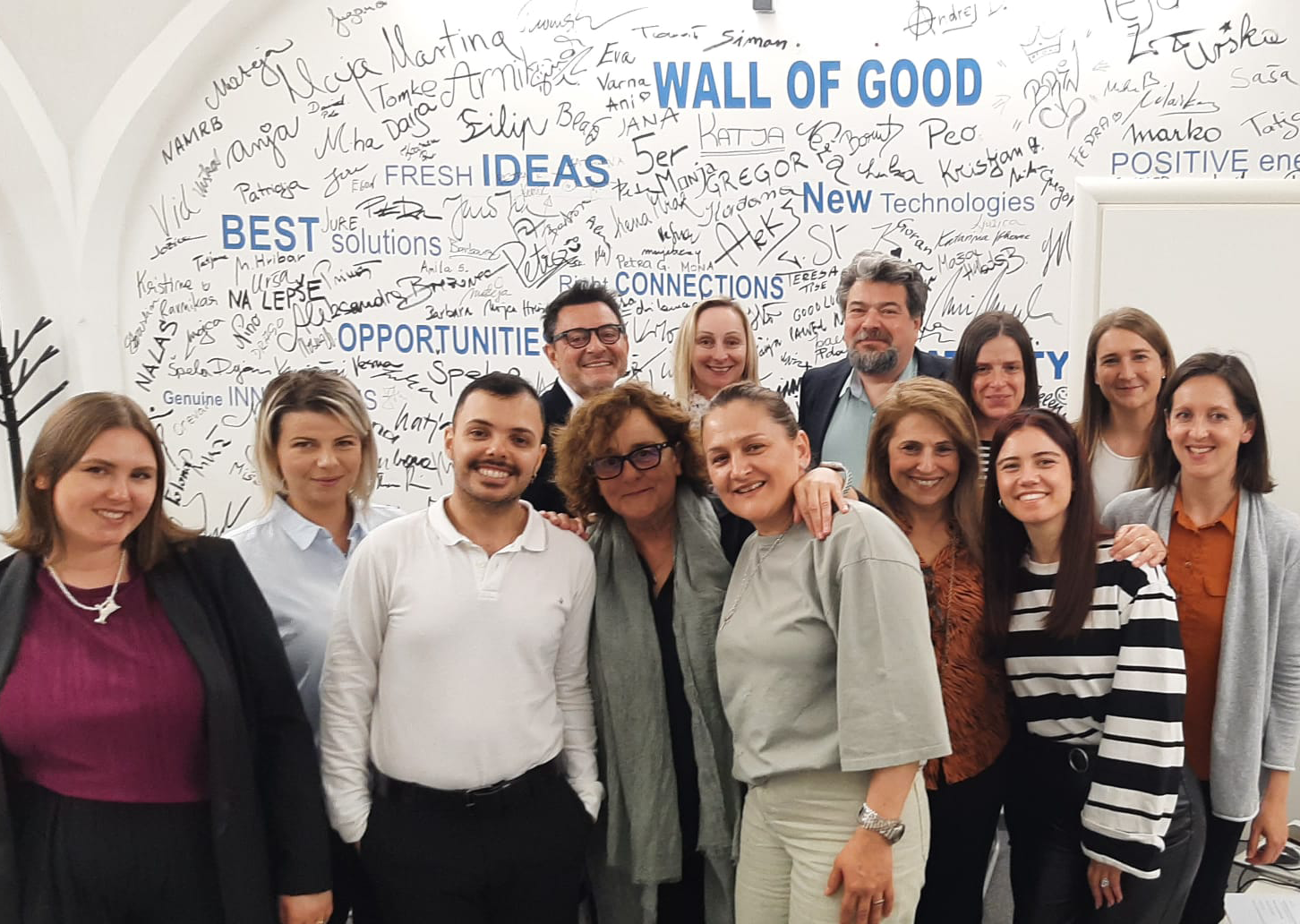 Organized by the Slovenian partner GOOD PLACE in Ljubljana, this meeting offered all partners the opportunity to evaluate the current achievements and schedule all next steps
Organized by the Slovenian partner GOOD PLACE in Ljubljana, this meeting offered all partners the opportunity to evaluate the current achievements and schedule all next steps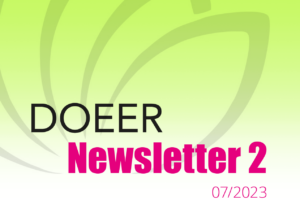 In this issue: Quality guidelines for HE digital and pedagogical competencies on equality; The DOEER definitions of equalities; Worst and best practice on equality; The DOEER second project meeting in Cyprus; The DOEER Framework
In this issue: Quality guidelines for HE digital and pedagogical competencies on equality; The DOEER definitions of equalities; Worst and best practice on equality; The DOEER second project meeting in Cyprus; The DOEER Framework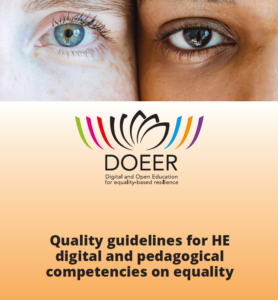 Open access Study ‘Quality guidelines for HE digital and pedagogical competencies on equality’ presents the analysis of the findings from the consultation of national groups of experts on quality-based practices in education and business sector
Open access Study ‘Quality guidelines for HE digital and pedagogical competencies on equality’ presents the analysis of the findings from the consultation of national groups of experts on quality-based practices in education and business sector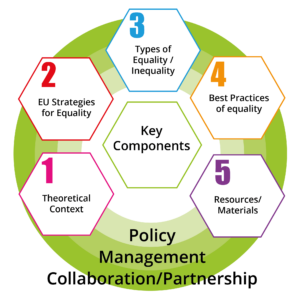 As core component of the DOEER learning, the project team created a specific Framework to support the achievement of competencies on equality-based practice
As core component of the DOEER learning, the project team created a specific Framework to support the achievement of competencies on equality-based practice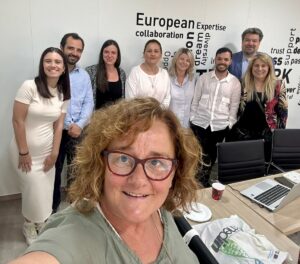 The project team met again in person in Nicosia (Cyprus)
The project team met again in person in Nicosia (Cyprus)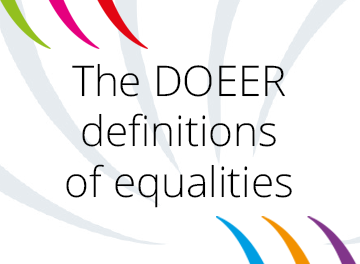 The DOEER project selected and described specific areas of Equality, in which the project provides dedicated learning to acquire competencies on equality-based practices in education and business sector
The DOEER project selected and described specific areas of Equality, in which the project provides dedicated learning to acquire competencies on equality-based practices in education and business sector Selected equality-based practices in education and business sector, in the identified areas of Equality, are provided as learning material
Selected equality-based practices in education and business sector, in the identified areas of Equality, are provided as learning material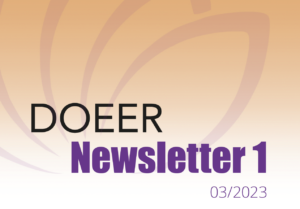 In this issue: The objectives of the DOEER project; The DOEER proposed learning; The DOEER branding; The DOEER first project meeting in person in Bucharest; Consultation of national groups of experts/counsellors in the project countries
In this issue: The objectives of the DOEER project; The DOEER proposed learning; The DOEER branding; The DOEER first project meeting in person in Bucharest; Consultation of national groups of experts/counsellors in the project countries National groups of experts/counsellors in the project countries will be consulted on what worst/best practice should be selected as relevant to the principles of equality-based practices in education and business sector
National groups of experts/counsellors in the project countries will be consulted on what worst/best practice should be selected as relevant to the principles of equality-based practices in education and business sector Intercultural equality refers to the principle of equal treatment and respect for all cultures, and the recognition of the diversity of cultural expressions and practices
Intercultural equality refers to the principle of equal treatment and respect for all cultures, and the recognition of the diversity of cultural expressions and practices